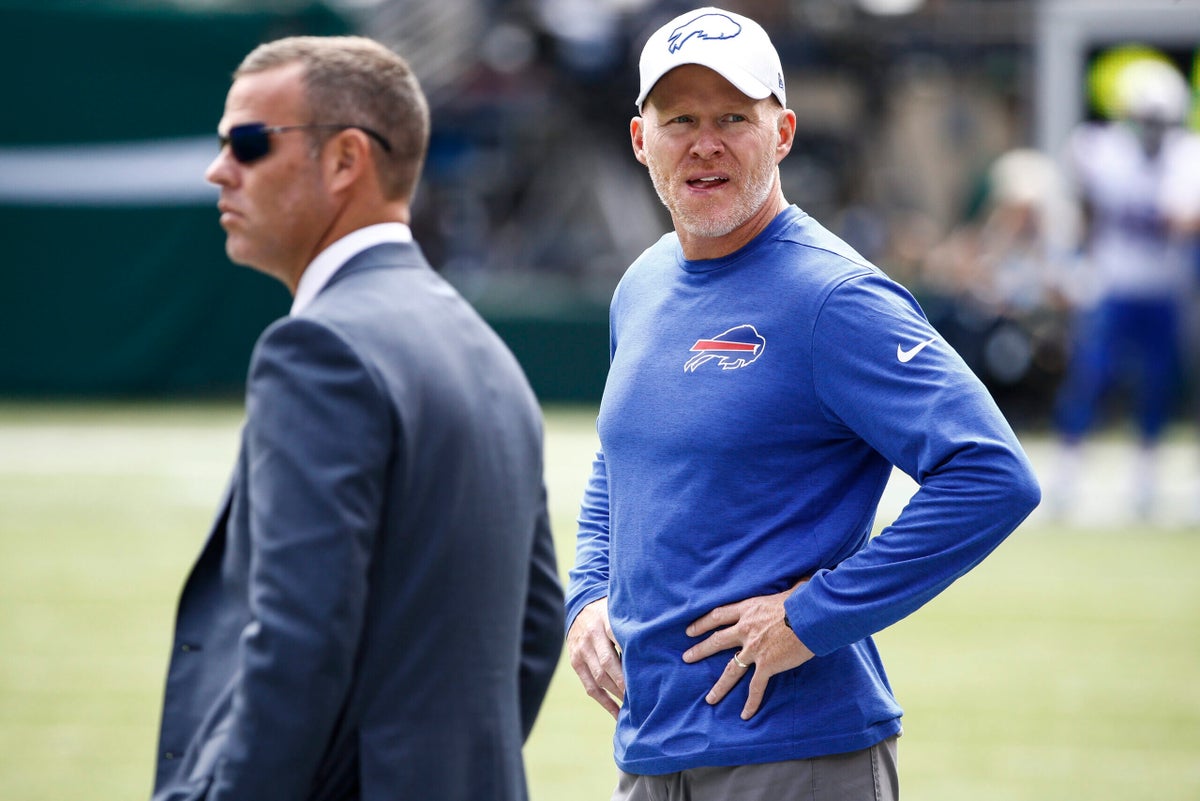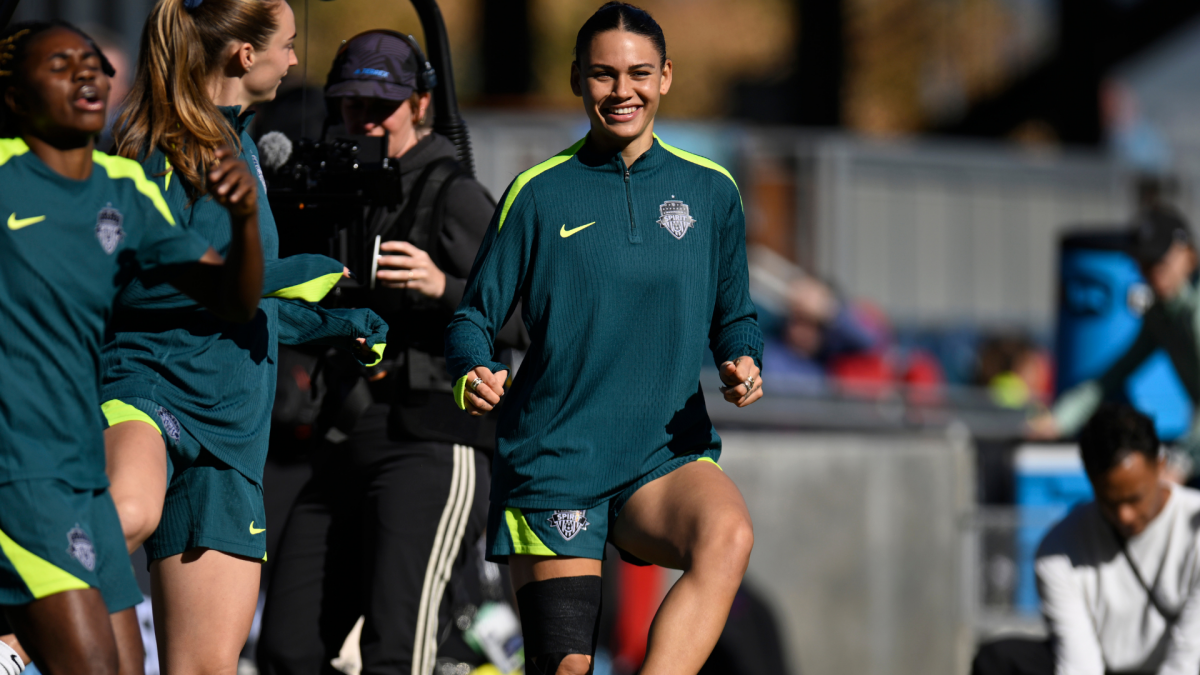

ORCHARD PARK, N.Y. – The Buffalo Bills still have an offseason need the analysts have ignored.
Over the past three years, a specific part of the roster has been drained of its best players. The latest departure puts the Bills “down a big piece,” coach Sean McDermott conceded, adding, “That’s an area we need to address and get back to addressing more this year.”
Advertisement
But the Bills haven’t addressed it much. Friday and Saturday might finally be the time.
Buffalo hasn’t been able or willing to re-sign several of its top core special teamers. Taiwan Jones left after the 2022 season. Another captain, Tyler Matakevich, departed with Siran Neal after 2023. Mack Hollins, maybe a special-teams captain if McDermott hadn’t culled the group down to one each on offense and defense, signed this offseason with the New England Patriots.
“When you lose core-four guys,” special-teams legend and coach Keith Burns said, “you’re losing the identity of your special-teams unit. It’s almost starting from scratch from where you were to where you want to get to.”
Core special teamers often are regarded as spare parts, backup players who get retrofitted onto the roster to serve a role.
But effective special-teams units, buoyed by quality players, can break games open. Mishaps also can vaporize a team’s chances to win any given game. Bills fans shouldn’t need reminders. Steve Tasker revolutionized what the job meant. He and teammate Mark Pike, who led the Bills in special-teams tackles seven of his final eight seasons, helped propel them to four straight Super Bowls. Although during the Bills’ long 21st century playoff drought, special-teams coordinator Bobby April’s units were among the NFL’s best.
McDermott clearly hasn’t been pleased with the impact Buffalo’s special teams have made. Since taking over in 2017, McDermott has dismissed three special-teams coordinators. He fired Matthew Smiley in February and hired longtime coordinator Chris Tabor, respected enough that the Carolina Panthers named him interim head coach for six games after firing Frank Reich in 2023.
Adjusted kickoff rules are expected to make core contributors more crucial in 2025. Last year, the NFL implemented a scrimmage-type kickoff and moved the touchback spot from the 20-yard line to the 30-yard line to induce more action. Returns rose from 21.8 percent in 2023 to 32.8 percent, but the NFL wants more. Touchbacks this year will go to the 35-yard line. The NFL projects that tweak will cause as many as 70 percent of kickoffs to be returned.
Advertisement
“We look for these special-teams aces,” McDermott said, “the Taiwan Joneses and Mack Hollinses, guys that can be real force players for us on special teams, core-four guys, who are dominant in two of the phases perhaps. We’re going to have to fill that void.
“We’ve had some of those big-time pieces, and I think it’s important, potentially with where this kickoff rule is going to go that we continue to have those pieces because special teams is not going anywhere. It’s in the game, and it’s here to stay.”
The most effective core special teamers exist at the nexus of speed, power and attitude. Slow dudes and pile inspectors need not apply. They must be aggressive enough to tackle on the coverage units, elusive enough to evade blockers on returns. Good instincts are critical.
They usually are backup linebackers, safeties, running backs and tight ends, but also cornerbacks and receivers who are willing to throw their bodies around and player larger than their dimensions. They commonly are wired to survive, overachieve. The best of them just want to play ball.
As such, they are known for their character and leadership, guys like former Buffalo linebacker and captain Lorenzo Alexander. He was a Pro Bowl special teamer for Washington and started only 16 of his first 133 NFL games before morphing into a Pro Bowl defender and captain in Buffalo at 33 years old.
“You’ve got to find guys that actually care about being in a unit,” said Burns, who won two Lombardi Trophies and was a special-teams captain with the Denver Broncos. “Just having an opportunity to showcase what you can do, what you can bring to the team. As you start to grow and develop, it’s all about finding your role.
“It’s about taking ownership. You’ve got to want to be out there, and coaches will expect you to do it with the same sense of urgency as if you’re running with the ball or playing defense on third down.
Advertisement
“John Elway’s rings are no different than mine except for the name.”
Burns, an All-America middle linebacker at Oklahoma State, started three of his 209 NFL games. TruMedia’s special-teams stats go back only until 2000, so we are missing the first six seasons of his career, but since the turn of the century, he still ranks ninth with 119 tackles and first with seven forced fumbles on special teams. He also recovered four fumbles and blocked punt over that span.
Buffalo general manager Brandon Beane and his staff will weigh special teams when drafting the next few days, with those traits scaling more heavily on each passing selection. Special teams can be the difference-maker in whether the Bills call an awaiting rookie with the good news.
“As you move back in the round,” Beane said, “you start talking, ‘How do we get this guy a jersey to get him on the field?’ Maybe he’s a linebacker, but he’s not going to get in front of our best guys (on the depth chart). So is he going to play special teams or be inactive?
“Especially as you get into Saturday’s picks — rounds four through seven, unless you’re talking about a quarterback or a defensive tackle — you’re definitely talking about, ‘What is their fourth-down value?’”
Bills fullback Reggie Gilliam led them last year with 386 special-teams snaps and will be back. Tight end Quintin Morris was second with 379 snaps, but remains unsigned.
Three of the Bills’ top four coverage tacklers last year were undrafted from the University of Buffalo: defensive back Ja’Marcus Ingram, linebacker Joe Andreessen and cornerback Cam Lewis. As the depth chart stands before the draft, Ingram and Lewis are second-stringers. If they take on more important roles on defense, then they won’t play as much on special teams. Sophomore safety Cole Bishop, a 2024 second-round pick, is another player the Bills would rather see play more defense than special teams. He forced the Bills’ lone special-teams turnover last year.
Advertisement
McDermott admitted continuity is desirable on special teams. Many of the greats stayed in one place for a substantial stretch. Think of Matthew Slater, Larry Izzo and Larry Whigham with the Patriots, Kassim Osgood with the San Diego Chargers, Michael Bates with the Panthers, Justin Bethel with the Arizona Cardinals and Montell Owens with the Jacksonville Jaguars.
The Bills, however, haven’t been able to maintain or develop perennial standouts. Serviceable workhorses, sure. But no true game-changers.
“Once you get into the salary cap and all those things, an organization wants bang for their buck. ‘Is he worth keeping for another year if he’s just in the kicking game?’” Burns said.
“A lot of times, teams don’t understand that until they have the right nucleus and can keep those guys playing together for a while, it saves you from ‘Oh, we can just bring in another guy.’ Because if he doesn’t have that same mentality as the kid you’re getting rid of, then you’re starting over.”
(Top photo of Sean McDermott and Brandon Beane: Jeff Zelevansky / Getty Images)
This news was originally published on this post .







Be the first to leave a comment